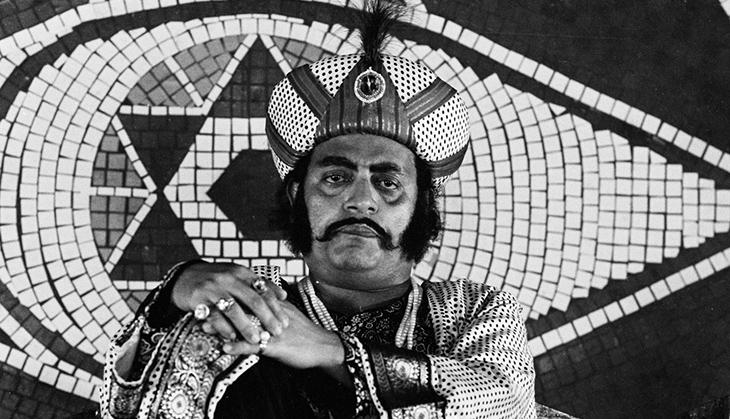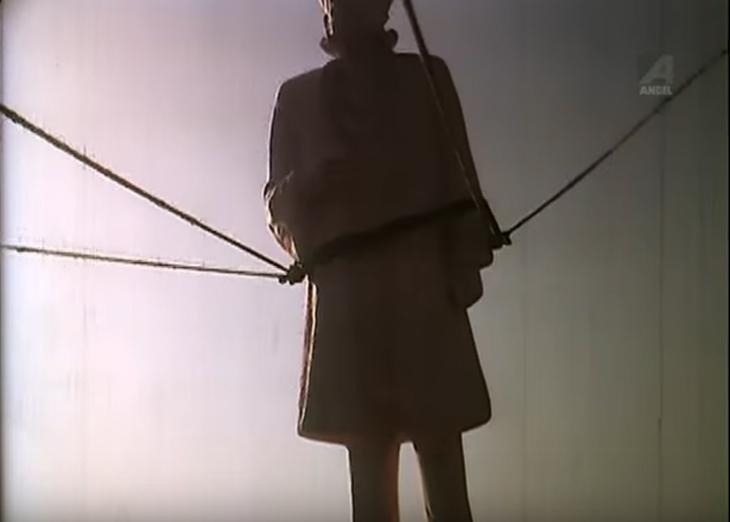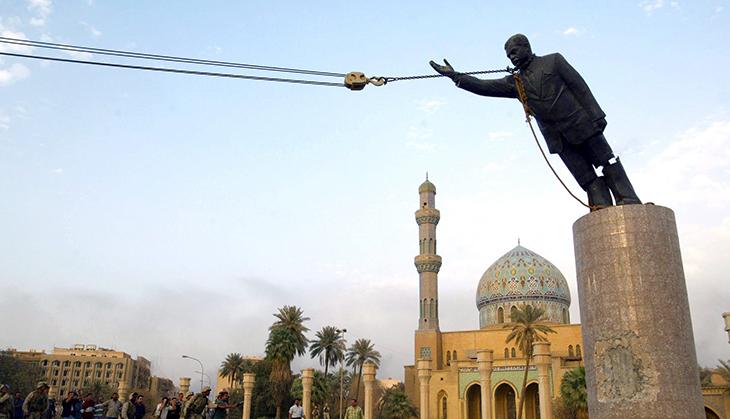Remembering Ray: How eerily Hirak Rajar Deshe resembles the current times

The article was originally published on 2 May, 2017.
*
A little over a year ago, the BJP government cracked down on Jawaharlal Nehru University (JNU), slapping sedition charges on three students and painting the whole university with nice red, anti-national colours. We knew it was just the beginning.
As the year rolled by and the chants of 'Shut Down' for universities got louder, a certain dialogue from Satyajit Ray's 1980 film Hirak Rajar Deshe came to mind, every time:
“Era joto beshi porey, toto beshi jaane, toto kom maane (The more they learn, the more they know, the less they obey),” the tyrant Hirak Raja (played by Utpal Dutt) tells his education minister as he orders him to shut down the only school in his kingdom.
He then asks his minister to burn the Puranas, the Vedas, the epics, the poetry... all of it. “How does it matter anyway?” muses the king's advisor. (Watch from 7:39 in the following clip for this scene.)
And you can watch the full movie here:
The longer you watch the movie the more you realise that Satyajit Ray had created a world so similar to our current one, it is startling. And what day better than Ray's 96th birth anniversary to remind ourselves of the masterpiece and its powerful relevance to today.
Hirak Raja, in his proud, all-encompassing and short-sighted avatar, is a certain someone of prime importance on some very trash heroin. Years later, Shovon Chowdhury in his The Incompetent Authority would create a world where a similar tyrant, on some bad drugs, has been allowed to run amok. Chowdhury's work is under no circumstance comparable to Ray's and the former is a big fan of the latter, but friends, Indians and countrymen, we have a present and a future.
But more of the present now.
Aaj theke paatshala bondho (The school is closed from today)
_59656.jpg)
The JNU incident came close at the heels of Hyderabad Central University (HCU) scholar Rohith Vemula's death.
Sides were picked, political leanings chosen. The cries of 'Shut Down JNU, Shut down HCU' got louder and louder. Then Jadavpur University (JU) came in the line of fire, then Srinagar's National Institute of Technology. And trouble came back home to Delhi as Delhi University (DU) faced the wrath for being 'anti-national'.
As the UGC and the government, in tandem, tries to crack down on university after university with seat cuts and fund slashes, changes the syllabus in schools and history chapters in books – the indication is simple. Shut down the free thinkers, shut down the institutions. The more the children learn, the less they will obey.
The scene where the school teacher Udayan (played by Soumitra Chatterjee) tells the education minister that his students will grow up with what he has taught them and will teach it to others – is what each and every university professor is hoping for as the relentless saffronisation and nationalised indoctrination carries on.
Also, in Hirak Rajar Deshe, Udayan, who teaches both Hindu and Muslim kids, escapes from the royal soldiers to and eventually becomes the person who manoeuvres the revolution to overthrow the tyrant. More about this later.
Of monarchs, absolutes and sycophants

Ray creates a world where the ministers in Hirak Raja's court sit, stand and do only as the king indicates. They nod in practised agreement to everything he says – Thik, thik (Right, right).
The royal astrologer asks the king – “Groho, nokkhotro kichu muche phelte hobey ki? (Do any stars and planets need to be wiped off the almanac?)” – when he says that all ages, preceding his own, should be wiped off history. The history of Hirak Raja's kingdom would begin and end with him.
It echoes of dangerous madness and a reality that's far too close for us to brush it under the carpet.
The king also has a Jantarmantar, a machine to brainwash those he chooses, that his scientist builds for him. They feed in mantras, one each for:
The farmer:
Baaki rakha khajna, motey bhalo kaj na (Unpaid taxes are not good)
Bhor pet nao khai, raj kor dewa chai (Even if you don't eat enough, taxes must be paid)
Jai jodi jak pran, Hiroker Raja bhogoban (Even if you lose your life, Hirak Raja is god)
The labourer:
Je kore khoni te shrom, jeno taare dore jom (The devil fears those who work in the mines)
Onahare nahin khed, beshi khele bare maed (Nothing wrong in starving, you grow fat with too much food)
Dhonno shromiker daan, Hiroker Raja bhogoban (Blessed is the labour and Hirak Raja is god)
The teacher:
Lekha pora kore jei, onahare more shei (The ones who study die of starvation)
Janaar kono shesh nai, janaar cheshta britha tai (There's no end to learning so it is pointless to try)
Bidya labhe lokshan, nai ortho, nai maan (There's no profit in learning, no meaning and no respect)
Hirak Raja buddhiman, kore shobe tar joyo gaan (Hirak Raja is the intelligent one, sing his praises)
Mantras that will be inscribed in their minds once the machine wipes away all they know. The three most vital people of the world, brainwashed and forced to call the tyrant a god. Do you feel the eerie familiar?
The regime of totalitarianism being advocated by a tyrant. The process has begun.
Viva la revolution
In Hirak Rajar Deshe, the revolution comes. Led from the front by the school teacher and aided by the protagonists Goopi Gyne (Tapen Chatterjee) and Bagha Byne (Rabi Ghosh).
But this revolution is not free of some little loopholes. Goopi and Bagha steal diamonds from the royal treasury and bribe the royal scientist to do their bid. Sometimes, you can only fix corruption by being corrupt? We wonder...
The fact that the revolution involves the students, and later includes the labourers and the farmers is indicative of a socialist, all-inclusive, free-thinking solution. The free-thinkers will save the world along with those who carry the weight of it.
Dori dhore maaro taan, raja hobey khaan khaan (Pull the ropes and the king will fall to pieces)
The last scene of the movie is perhaps the most striking when it comes to its relevance to our times. The scene eerily seems to prophesy the toppling of Saddam Hussein's statue in April 2003. Hirak Rajar Deshe was made in 1980.


And for us – this scene seals it – this is the eternal relevance and magic of Ray, simplified.
There are never enough words to explain his genius, but the perfect simplicity with which Ray made political and social statements in two movies, essentially meant for children, is unmatched brilliance.
Admitted, that a lot of magic is lost in translation and bad-to-mediocre subtitles, but for those who know the language, here are two more reminders (both from his 1969 movie Goopi Gayen Bagha Bayen):
Masters never become irrelevant. Happy Birthday Satyajt Ray.
First published: 2 May 2017, 18:47 IST






![BJP's Kapil Mishra recreates Shankar Mahadevan’s ‘Breathless’ song to highlight Delhi pollution [WATCH] BJP's Kapil Mishra recreates Shankar Mahadevan’s ‘Breathless’ song to highlight Delhi pollution [WATCH]](https://images.catchnews.com/upload/2022/11/03/kapil-mishra_240884_300x172.png)

![Anupam Kher shares pictures of his toned body on 67th birthday [MUST SEE] Anupam Kher shares pictures of his toned body on 67th birthday [MUST SEE]](https://images.catchnews.com/upload/2022/03/07/Anupam_kher_231145_300x172.jpg)






